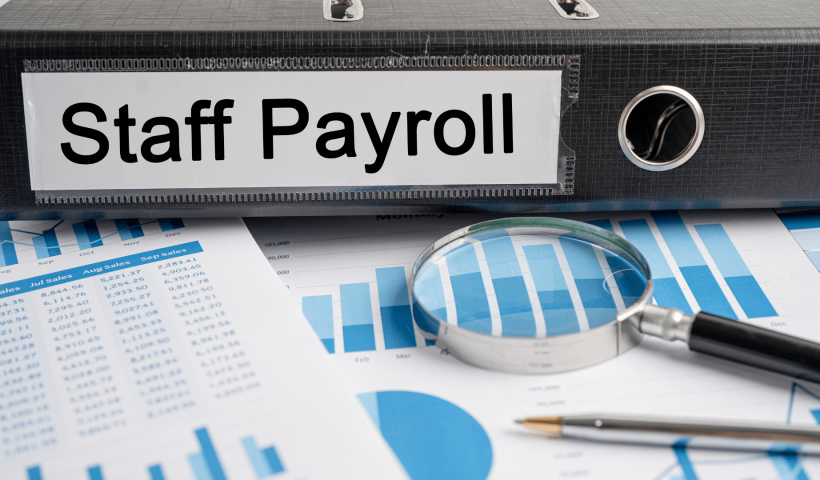How Should I Record Salary Costs in My Accounts?

For many business owners, managing payroll and accurately recording salary costs can be a complex aspect of financial administration. Whether you’re a seasoned entrepreneur or just starting out, it’s crucial to understand how to properly handle these entries in your accounting system. This guide will clarify how to record both the salary costs and the associated liabilities, ensuring that your financial statements accurately reflect your payroll expenses.
Understanding Payroll Accounting
Payroll involves several components, and not all may apply to every business, for example, not all employees may contribute to a pension. However, a proper understanding of what is included can simplify your payroll processing:
Gross Salary Costs – These are the total salary costs before any deductions and include gross wages, employer national insurance contributions, and employer pension contributions.
Liabilities – These include amounts you owe to others from payroll processing, such as income tax, national insurance contributions (both employer and employee), net wages payable to employees, and pension contributions.
Integrating Payroll with Accounting Software
Many businesses benefit from payroll software that is integrated with their accounting software. This integration can automatically record payroll costs and liabilities when payroll is processed, significantly simplifying your bookkeeping:
Automatic Entries – With integrated systems, entries related to payroll processing are automatically recorded in the correct accounts, ensuring accuracy and saving time. But be cautious because you need to set up the system properly first so it can record all salary costs and liabilities properly for you.
Reduction of Errors – Automation reduces the likelihood of manual entry errors, which can be costly and time-consuming to correct.
Professional accountant from Oxford
VAT feels too overwhelming?
Are you a small business owner looking for basic bookkeeping and accounting services, or a larger business seeking more complex support from an experienced accountant?
Manual Payroll Entries
If your payroll software is not integrated with your accounting system, you will need to make these entries manually:
Profit & Loss Account Entries
In your Profit & Loss account, you should record:
✅Gross wages
✅Employer national insurance contributions
✅Employer pension contributions
These entries reflect the total salary costs to your business, providing a clear picture of payroll expenses that affect your business’s profitability.
Balance Sheet Entries
Various liabilities associated with payroll should be recorded on your Balance Sheet:
✅Income tax to HMRC
✅Employer and employee national insurance contributions (possibly in the same account as the income tax liability)
✅Net payments to employees
✅Payments to pension providers (employer and employee contributions)
Bank Transactions and Reconciliation
When reconciling your bank account, ensure that payments made align with the liabilities recorded:
✅Payments to HMRC should offset the corresponding liability account on the Balance Sheet.
✅Payments to employees should clear the net wages liability.
✅Payments to pension providers should match the pension liability recorded.
Regular reviews of these accounts are crucial to confirm that everything has been paid correctly and that postings are accurate.
Streamlining Payroll Entries
To alleviate confusion and improve efficiency, consider customising the names of the accounts in your accounting software:
Meaningful Names – Rename accounts to terms that are clear and meaningful to you and your bookkeeping practices so you know what is a salary cost and what is a liability
Designations – Adding designations like “P&L” or “Balance Sheet” to account names can help quickly identify where each transaction should be recorded.
Properly recording salary costs and associated liabilities is essential for accurate financial reporting and compliance. By understanding the components of payroll, you can streamline payroll processing and enhance the financial management of your business.
At Joanna Bookkeeping, we understand the intricacies of managing business finances and are here to help. With expert advice and tailored accounting solutions, we can assist you in identifying and controlling unnecessary expenses, ensuring your business remains financially healthy and competitive.
Looking for further assistance with recording salary costs or any other accounting topic? Don’t hesitate to contact the Oxford-based accounting team at Joanna Bookkeeping. Book a call with our Oxford accountant and let’s have a chat.

Your Accountant in Oxford
Oxford Office
Joanna Bookkeeping
The Wheelhouse Angel Court
First Floor, Angel Court
81 St Clements St
Oxford
OX4 1AW
Connect
joanna@joannabookkeeping.co.uk
01865 591952





